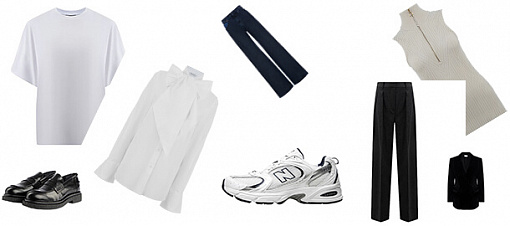Experts from Technogym, an international leader in fitness, healthy lifestyle and sports solutions from Italy, shared tips on how to boost the immune system.

Strong immunity is essential, especially when our defense system is exposed to stress, changing seasons, and eating disorders. The combination of these factors can make the organism vulnerable, unable to resist dangerous micro-organisms and result in getting sick. How to increase our immune capabilities and what is the role of working-out and diet? Let’s figure it out.
Drive to balance and harmony
Supermarkets and pharmacies promise a lot and offer a wide range of products to improve and strengthen the immune system. However, advertising slogans are hardly ever worth believing: scientists have learned that it is difficult if not impossible to boost immunity by means of separate food products. The cells of the immune system are numerous, plus that, they fall into several types and react to different pathogens differently. What cells do need to get strengthened? Which ones should increase? If so, what is their proper quantity? Currently, scientists do not know the answers, but they are united in the belief that eating must be balanced.
There is evidence that the shortage of zinc, selenium, iron, copper, folic acid and vitamins A, B6, C and E make a negative impact on immunity. Do your best to stick to a healthy diet rich in fruit, vegetables, and foods with lower levels of saturated animal fats. In case your diet lacks trace elements (minerals and vitamins), it makes sense to take multivitamins and mineral supplements. When choosing proper medication, it is always advisable to consult a physician.
Pillars of Health
A sedentary lifestyle has a negative impact on well-being and entails the development of chronic diseases such as cardiovascular disease, obesity, type 2 diabetes and metabolic syndrome. The key elements from the Wellness Living healthy lifestyle include:
- Quitting smoking
- Healthy diet, rich in fruit and vegetables
- Regular physical activity
- Maintenance of optimal body weight
- Refusal of alcohol either moderate consumption
- Healthy sleep
- Frequent hand-washing
- Minimal stress

Movement toward the ideal
Regular exercise improves cardiovascular health, is good for lowering blood pressure, helps control body weight and protects against a wide range of health disorders. This occurs due to the fact that physical exercise improves blood circulation, and therefore the substances necessary for the proper functioning of the immune cells are delivered to the cells faster. However, it makes sense not to run the extremes: highly intensive exercises can lead to increased vulnerability to infection.
We are told by scientists to train with moderate intensity, avoid extremely high loads which can have a seriously counter-productive effect. Moderate exercise benefits the immune system and reduces the frequency of upper respiratory tract infections. During work-out, the circulation of immunoglobulins, neutrophils as well as natural killer cells increases, the effect lasts up to 3 hours after training. This increase in immune cells caused by physical exercise is temporary but improves overall body control of pathogenic micro-organisms.
It is recommended to work-out twice or better three times a week, performing a combination of aerobic and strength training with moderate intensity. At home, take advantage of aerobic fitness equipment such as an exercise bike or a treadmill. During the days when you are not having work-outs, it is worth maintaining activity in a simple and efficient manner – just to have extra walks.

No stress
Modern medicine has established a close connection between body and mind. A large number of diseases from urticaria to cardiovascular diseases are closely linked with stress. This also holds true for the functioning of the immune system, especially when it comes to chronic stress, which can have more significant consequences. Scientists have identical views that we’d better avoid stress experiences, or at least learn to control them. Ways to manage stress can vary - meditation, yoga, breathing practices, as well as physical activity, especially low-intensity aerobic exercises.







